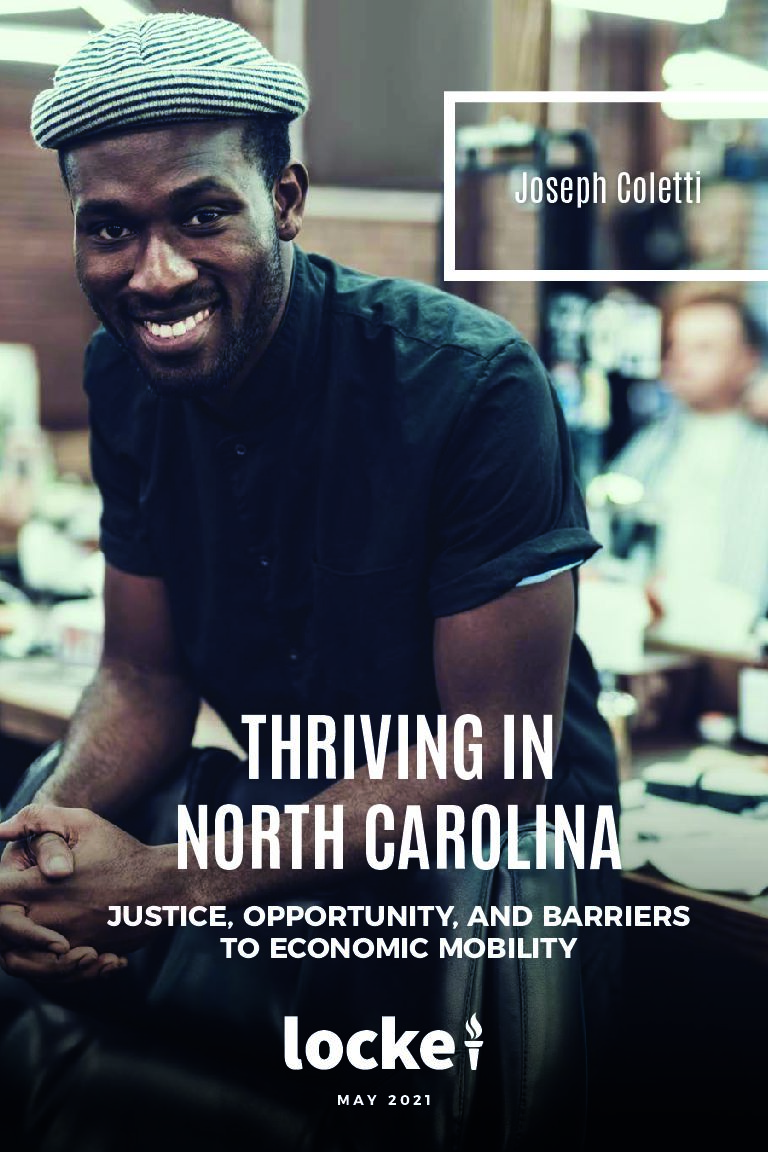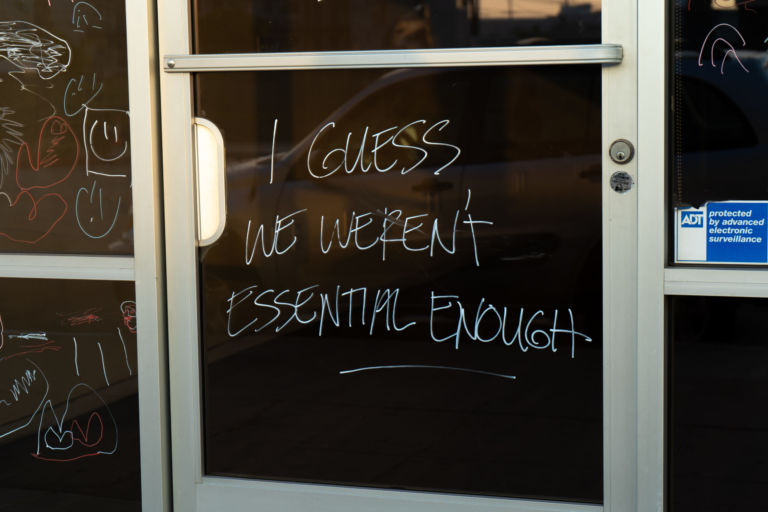Executive Summary
Charlotte’s ranking in a 2014 study as 50th of 50 large cities for economic mobility ignited an effort among city leaders to understand the causes and propose solutions. One of those attempts highlighted a pattern of government policies from the 1930s through the 1960s, some well-intentioned and others not, that erected barriers to opportunity in Black communities. Busing and other targeted attempts to help people surmount those barriers over the ensuing years have been unsuccessful and unsustainable. Dismantling barriers to opportunity will not ensure better outcomes, but it will expand the number of paths to prosperity that are available and reduce the cost of daily life.
In recent years, such disparate political movements as the Tea Party, Occupy Wall Street, Black Lives Matter, and the political successes both of Donald Trump and Bernie Sanders all shared a common theme of frustration. Part of that frustration stems from the fact that more than one person in eight still lives in a household that does not earn enough to stay out of poverty without government assistance.
Policy responses will always come up short without moral truth. Government and markets, whether on their own or together, cannot value Black lives or end intergenerational poverty. Such entrenched challenges require a response from the community. Government can, by peeling back bureaucratic hurdles to success, allow people to use their talents for the benefit of others and to build margin for mistakes.
One policy proposal offered here would keep an existing barrier to opportunity from getting higher. Policymakers at the city and state level should resist the temptation to raise the minimum wage, which would make it harder for people to start climbing the ladder of economic mobility.
The other proposals would lower barriers. Reducing the burdens from occupational licensing would make it easier to find work. Allowing more licensed medical practitioners to provide more care that is within their ability would make it easier for people to advance in their careers. Reducing regulatory burdens on start-up companies and home-based businesses would give more people options to earn money through side hustles or entrepreneurialism. Each time a barrier to opportunity falls, it not only creates a new step towards economic mobility, it reduces the cost of providing for a family’s needs.
Charlotte and the rest of North Carolina should reduce the burdens that keep the current generation of adults from gaining ground so they can provide more opportunities for the next generation. People can always fail with opportunity, but without it they cannot succeed.



